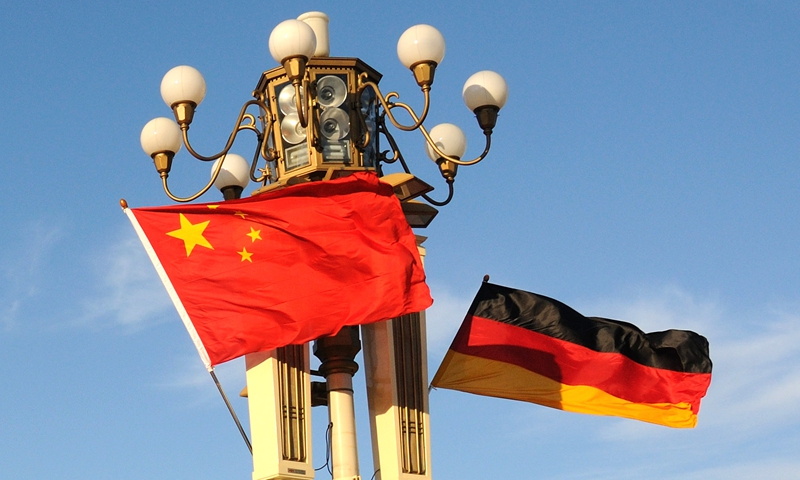Landscape of China-Germany cooperation will not change despite some people's wishful thinking

File Photo: Xinhua
Olaf Scholz, leader of the Social Democratic Party of Germany, will be sworn in as Germany's next chancellor on December 8, managing a three-party coalition. However, incoming German Foreign Minister Annalena Baerbock has made a series of harsh remarks, vowing to put human rights at the center of German diplomacy and to hold a more assertive stance towards China and Russia. Consequently, there are concerns around the new German government abandoning the pragmatic approach of the Merkel era and amplify ideology. Will China-German cooperation continue? Moreover, will China-EU relations go in the wrong direction?
The pragmatic cooperation between China and Germany has been a good model. In particular, both sides established mutual trust and stable win-win relations during the Merkel administration. However, competition between the two countries has increased these years as some people in Germany hold a negative image of China. The root cause lies in the basic views of these people.
First, is the international situation. In the midst of major changes not seen in a century, the West's loss of control of the international system has triggered great anxiety. But the rise of the East and the fall of the West is a reality, whether the West accepts it or not.
Second, is the concept of development. Keeping up with the times is most important when facing changes rather than staying in the comfort zone. The West should further consider how to make better use of the opportunities brought by China's development and improve its competition, instead of assuming a tough posture. After all, protectionism and cold war thinking is never a solution to anything.
Third, are values. The West has its history and culture to be proud of but there is no universal value in the world. The one-size-fits-all approach will not work as it has been illustrated by the North-South divide in the Euro area and the East-West divide between old and new member states of the EU. If the tough remarks of this incoming German Foreign Minister may not even be acceptable to other member states, how can they be imposed on China?
In fact, the big picture of cooperation between China and Germany does not depend on the thinking of a small group of people, let alone the words of individual politicians.
There are still important interests around China-Germany cooperation. According to a report by the Germany Federal Statistical Office, foreign trade turnover with China increased by 3 percent compared to 2019 despite the COVID-19 epidemic, with goods worth 212.1 billion euros ($256.7 billion) traded between China and Germany in 2020. China also remained Germany's biggest trade partner for the fifth consecutive year. The two countries still complement each other in many aspects as China's expanding middle class provides a huge market for German cars and other consumer goods.
Additionally, relations with China are not the most urgent issue for Germany at the moment. Fighting the new wave of the COVID-19 pandemic and solving social justice are on the top of the agenda. The new German government should be more concerned about the economic recovery and guaranteeing people's livelihood. In this regard, Germany needs to cooperate more with China to achieve its goals.
Furthermore, the new German government is composed of members from the left-wing Green Party, the center-left Social Democratic Party, and the right-wing Free Democratic Party. So, even though Baerbock will lead the German Foreign Ministry, she and her party do not have complete control over foreign policy. It is the new chancellor, Olaf Scholz, who has the final say in foreign affairs and it is well known that Scholz's party has always advocated for dialogue with China.
Last but not least, the voice of one country in the EU about China cannot fully represent the whole bloc. While Germany has the greatest economic strength among all EU member states, it is only a part of the European integration engine. Words that emphasize ideology may be welcomed by some pro-US forces in Europe but they do not necessarily meet the overall interests of the EU.
Some politicians in Germany may make unexpected statements out of partisan interest but we should realize that this is not the mainstream view. So, besides listening to their words, we should also pay attention to their future actions. There are indeed some differences to be dealt with between China, Germany and the rest of Europe. However, the general pattern of cooperation between the parties remains, and will not be changed by some people's wishful thinking.
The author is a professor at the School of International Relations at the Beijing Foreign Studies University. opinion@globaltimes.com.cn
